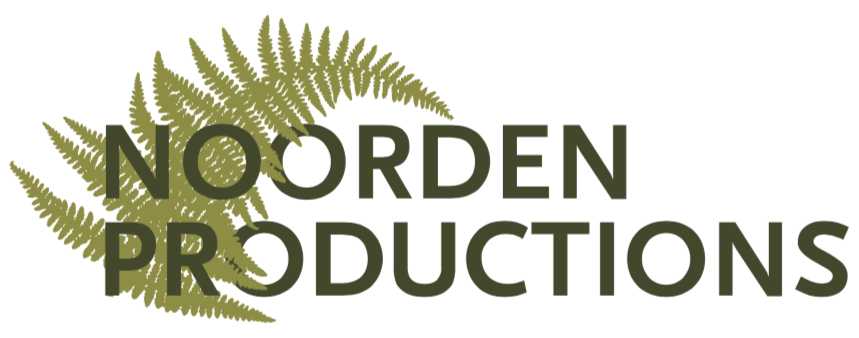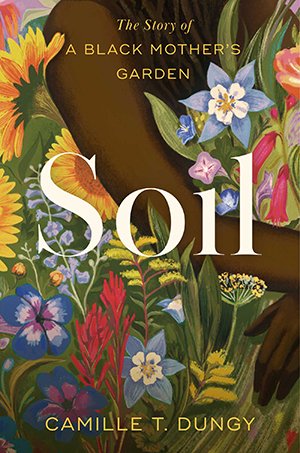Sara Gagné is an author and associate professor of landscape ecology in the Department of Geography and Earth Sciences at the University of North Carolina. Her research, teaching, and writing is dedicated to understanding and communicating how people and nature interact in cities. In this episode of Nature Revisited, Stefan and Sara discuss her book Nature at Your Door: Connecting with the Wild, which explores how what we do in our yards matters just as much as the way our local parks and nature preserves are managed. Beginning with a perspective of the yard, moving onto streets, parks, neighborhoods and cities, Sara illustrates how people and nature are vitally connected in the urban and suburban landscape.
Episode 102: Tony Hiss - Rescuing The Planet
Tony Hiss is the author of fifteen books, including the award-winning The Experience of Place. He was a staff writer at The New Yorker for more than thirty years, was a visiting scholar at New York University for twenty-five years, and has lectured around the world. In this episode of Nature Revisited, Tony discusses his latest work Rescuing The Planet - Protecting Half The Land To Heal The Earth. Covering topics including the vast Boreal Forest, global animal tracking, the origin of the Appalachian Trail, and various conservation initiatives and the people behind them, Tony offers a broad perspective of the Earth's biosphere: its land, its elements, its plants and animals, its greatest threats--and what we can do to keep it, and ourselves, alive.
Episode 101: Christopher Preston - Tenacious Beasts
Christopher J. Preston is a writer, public speaker, and environmental philosopher based in Missoula, Montana. His new book Tenacious Beasts takes an inspiring look at wildlife species that are defying the odds and teaching important lessons about how to share a planet. In this episode of Nature Revisited, Christopher talks about an optimistic future with wildlife, envisioning a fresh way to live alongside the natural world in the Anthropocene age. Touching on different facets of ecological restoration from Indigenous knowledge to rewilding practices, Christopher describes, with a measure of hope, a future in which humans and animals can once again coexist.
Episode 100: Steven Hawley - Cracked
Steven Hawley is an environmental journalist who writes about rivers, dams, and the ecological impacts they have on salmonids in the American West. He is the author of Cracked: The Future of Dams in a Hot, Chaotic World (2023), Recovering a Lost River (2011), and the writer and co-producer of an award-winning documentary, Dammed to Extinction (2019). In this 100th episode of Nature Revisited, Steven walks us through the history of extensive, misguided dam building in the United States and the resulting environmental, economic, and human repercussions. Citing startling examples, he explains how the costs of maintaining a sprawling water storage system in an increasingly arid world under the ravages of climate chaos is well beyond the benefits furnished.
Episode 99: Charlie Bluett - The Abstract in Nature
Charlie Bluett is an abstract and expressionist artist whose works are driven by his overriding passion for nature and the natural world. His contemporary abstract colorfield paintings focus on the natural scenes & objects we are exposed to within the Earth's vast and varied outdoor environments. In this episode of Nature Revisited, Charlie walks us through his early life in England and eventual discovery of New England in the US - Vermont in particular - which he chose as his home and an essential source of inspiration for his art. Charlie expounds upon the meaning of the abstract, the line between art and artist, and describes his artistic process as an effort to translate the light, colors and textures, ebb and flow, and ephemeral beauty of nature through his works.
Dune
Sea Shimmer
The Winter Walk
Episode 98: The Wildlands Conservancy - Behold The Beauty
Founded in 1995, The Wildlands Conservancy is dedicated to preserving the beauty and biodiversity of the earth and providing programs so that children may know the wonder and joy of nature. TWC has established the largest nonprofit nature preserve system on the US West Coast, open to the public, and encompassing nearly 200,000 acres of diverse landscapes. In this episode of Nature Revisited we meet Executive Director Frazier Haney who explains the founding and mission of TWC, as well as its core approach to preservation and education. Additional topics include fostering a positive impact on conservation through land ownership, building relationships with local indigenous communities, the challenges of climate disruption and wildfires, TWC's plans for the future, and the Behold The Beauty association which helps foster the appreciation of Natural Beauty in people’s daily lives.
Episode 97: John Perlin - A Forest Journey
John Perlin is a lecturer, consultant, and the author of several scientific/historical books including A Forest Journey: Wood and Civilization, published by Harvard University press as one of its "One-Hundred Great Books" and a "Classic in Science and World History." In this episode of Nature Revisited, John takes us back in time to discover how wood was the foundation upon which most societies were built. With wood serving as the basis of metallurgy, ceramics, architecture, the construction of ships and more, civilizations rose and fell because each began with a plentiful forest resource, used it up, and was extinguished – to be succeeded by a newer center, closer to a new rich swathe of forest. By viewing human history in the context of wood as humanity's most essential material, we see that humanity's future relies on renewing our symbiotic relationship with the trees that have sustained us.
Episode 96: Jared Rosenbaum - Wild Plant Culture
Jared Rosenbaum is a botanist, native plant grower, certified ecological restoration practitioner, and co-owner of Wild Ridge Plants LLC in New Jersey. He has extensive experience in stewardship of natural communities and is known for his lively workshops on plant ecology, restoration, and the cultural uses of wild plant foods and medicines. In this episode of Nature Revisited, Jared talks about discovering the wonders of nature after moving to rural New Jersey and committing himself to the study of native plants and the pursuit of ecological stewardship & restoration. Topics of discussion include preservation vs restoration, what makes a plant native, the impact of humans on their environments, restoration tips, and re-imagining our place in nature.
Episode 95: Lorraine Johnson - Unsettling The Garden
Lorraine Johnson is a Toronto-based writer, editor, community advocate and cultivation activist. Her work focuses on people and communities growing plants, ecological health, and connection to nature and to each other. Her recent series of talks entitled Unsettling The Garden addresses arguments raised by the Truth and Reconciliation Commission report (of Canada) and is the topic of this episode. As the report emphasizes, "Reconciliation between Aboriginal and non-Aboriginal Canadians, from an Aboriginal perspective, also requires reconciliation with the natural world." In this discussion, Lorraine describes the many ways that native plant gardening and related practices help to restore our relationship with nature and encourage kinship with plants and wildlife.
Episode 94: Camille Dungy - Soil: The Story of a Black Mother's Garden
Camille T. Dungy is an award-winning poet, author and professor with an interest in the intersections between literature, environmental action, history, and culture. Her latest book, Soil: The Story of a Black Mother’s Garden recounts the seven-year odyssey to diversify her garden in the predominantly white community of Fort Collins, Colorado. In this episode of Nature Revisited, Camille discusses a range of topics including the origins of her unusual nature book, influences on her relationship with nature, the role of story in our lives, rethinking the terms we use to define our world, and the connection between social justice and environmental justice.
Episode 93: Jeffrey Ryan - Ode To An Old Pine
Jeffrey H Ryan is an author, adventurer, photographer, and historian. He has written several books about his outdoor exploits, his fascination with hiking trails, and the people and places found just off the beaten path. In this episode of Nature Revisited, Jeffrey returns once again to share his Ode To An Old Pine - an autobiographical recounting of formative experiences within (and about) nature, with a massive ancient pine tree acting as a symbolic pillar and centerpiece of those experiences.
Episode 92: Ursula Goodenough - Religious Naturalist
Ursula Goodenough is a Professor of Biology Emerita at Washington University in St. Louis, and serves as president of the Religious Naturalist Association. She authored the textbook Genetics and the best-selling book The Sacred Depths of Nature. She has presented the paradigm of the Religious Naturalist Orientation and the Epic of Evolution in numerous venues around the world. In this episode of Nature Revisited, Ursula describes what it means to be a Religious Naturalist. By first establishing a basis of scientific knowledge and then discussing topics such as spirituality, death, meaning, and separating technology from science, Ursula presents a perspective that reconciles our modern scientific understanding of reality with our timeless spiritual yearnings for reverence and continuity.
Episode 91: John Navazio - The Importance of Seeds
John Navazio breeds genetically-resilient, open-pollinated leafy greens and root crops for regenerative farming practices at Johnny's Selected Seeds in Maine. He is also the author of The Organic Seed Grower. His work focuses on developing varieties with robust growth, broad resistance to disease and environmental stress, and superior culinary quality. In this episode of Nature Revisited, John discusses his lifelong relationship with seeds, their importance, and his philosophy & approach to breeding robust, genetically-diverse crops.
Episode 90: Jackson Newman - A Year on the Slough
After graduating college, Jackson Newman discovered and read A Sand County Almanac by Aldo Leopold, and immediately felt compelled to join the Aldo Leopold Foundation. He was awarded a fellowship, and spent a year in Sand County, Wisconsin's 'Slough', writing two articles for the Foundation about land ethics and conservation. These two articles, titled The Backwash of the River Progress and The Guiding Virtues of the Land Ethic are the basis of this episode's discussion on land conservation between Jackson and host Stefan Van Norden.
Episode 89: Vítor da Silva - Working For Indigenous Rights
Vítor da Silva is an indigenous-rights researcher, ethnographer and storyteller. He has a background in anthropology, human rights, and is a trained criminal investigator. He has conducted fieldwork with different indigenous communities around the world, including: the Maasai tribe in Kenya, the nomadic Changpa people in the Indian Himalayas, and the Noke Kuin people in the Brazilian Amazon. In this episode of Nature Revisited, Vítor recounts pivotal childhood events that led him to reject the status quo and instead seek meaningful experiences and pursuits into adulthood. Combining his military, investigative and anthropological experiences, Vítor outlines how these skills inform his holistic and dedicated approach in working to aid indigenous groups all over the world.






























